Inclusive Workforce in Leather Factory: Why It Matters
In today’s forward-thinking manufacturing environment, building an inclusive and compassionate workforce is not just a social responsibility, it’s a competitive advantage. In the world of leather goods manufacturing, where craftsmanship, quality, and human values intersect, empowering vulnerable individuals has become central to sustainable success.
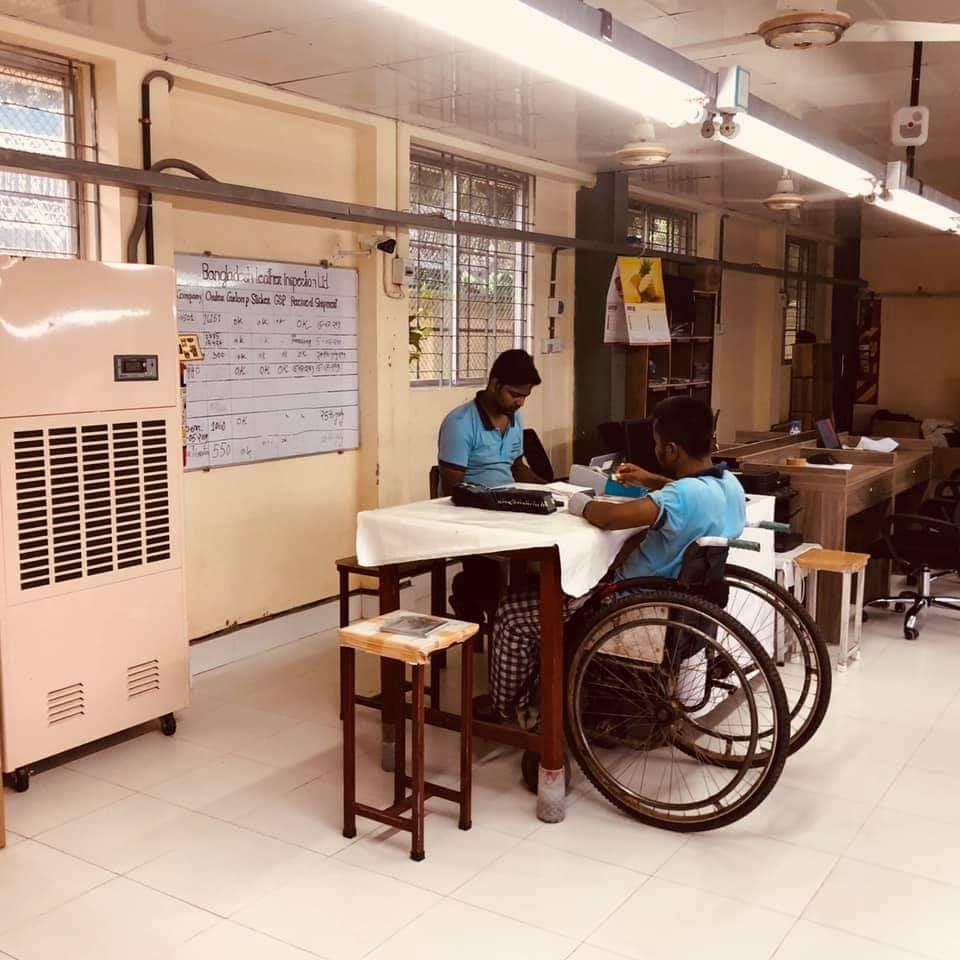
Table of contents
- ▶︎1. A New Era in Leather Goods Manufacturing
- 1.1 The Shift Toward Ethical Manufacturing
- 1.2 Why Compassion Matters in Manufacturing
- ▶︎2. Who Are the Vulnerable Persons We Support?
- 2.1 Identifying Marginalized Communities
- 2.2 Why They Deserve a Place in the Workforce
- 2.3 Why This Matters to the Industry
- ▶︎3. How We Recruit: A Model of Inclusive Employment
- 3.1 Recruitment with Purpose
- 3.2 Skills Training & Development Programs
- 3.3 Learning by Doing: The Leather Goods Journey
- 3.4 Accessible Facilities & Safe Work Environment
- 3.5 Psychological & Social Support
- 1.2 Why Compassion Matters in Manufacturing
- ▶︎4. Empowering Lives Through Leather Goods Manufacturing
- 4.1 A Career, Not Just a Job
- 4.2 Financial Independence & Dignity
- 4.3 Building Community Role Models
- 4.4 Success Stories that Inspire
- ▶︎5. Industry Benefits of a Compassionate Workforce
- 5.1 Higher Retention & Job Satisfaction
- 5.2 Enhanced Brand Image & Buyer Trust
- 5.3 Contribution to ESG Goals
- 5.4 Competitive Edge in a Global Market
- 5.5 Aligning with Global Trends
- ▶︎6. The Future of Leather Goods Manufacturing: Compassion with Craftsmanship
- 6.1 A Call to Action for the Industry
- 6.2 Scaling the Model
- 6.3 Collaborating with Ethical Brands
- 6.4 A Human-Centered Approach Wins
- ▶︎7. Summary
1.1 The Shift Toward Ethical Manufacturing
Today’s leather goods manufacturing industry is not just about craftsmanship it’s about compassion. In an era where brands are held accountable for ethical sourcing and fair labor, supporting vulnerable groups has emerged as a key driver of both social value and business growth.
1.2 Why Compassion Matters in Manufacturing
A leather goods factory that integrates vulnerable individuals into the workforce isn’t just doing the right thing; it’s building a stronger, more loyal team while enhancing brand reputation.
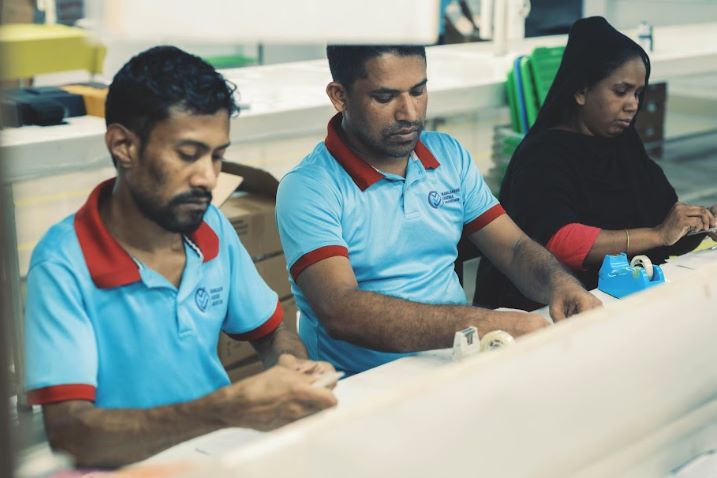
2.1 Identifying Marginalized Communities
At BLJ Bangladesh Corporation Ltd., we prioritize recruiting:
- Victims of abuse or social exclusion
- The physically challenged
- Single mothers
- Third-gender individuals
- Orphans and abandoned youth
- Deaf individuals
2.2 Why They Deserve a Place in the Workforce
These individuals often face systemic barriers to employment. By offering them opportunities in leather goods manufacturing, we empower them to break the cycle of poverty and discrimination.
2.3 Why This Matters to the Industry
Hiring vulnerable workers not only enhances social equity but also improves retention, reduces absenteeism, and increases productivity crucial benefits for leather goods manufacturing units aiming for global excellence.
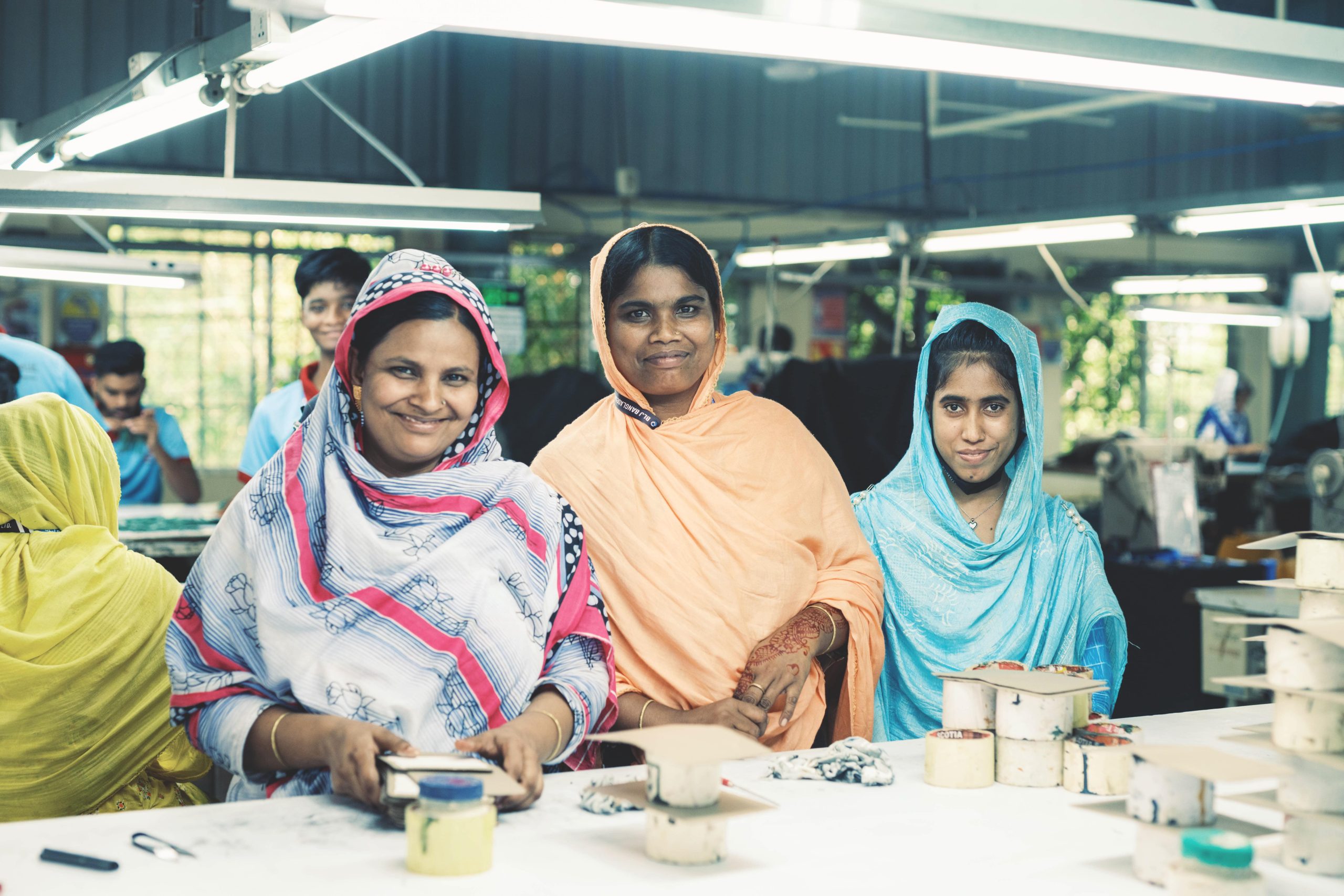
3.1 Recruitment with Purpose
Our recruitment model at BLJ Bangladesh Corporation Ltd. is built on inclusivity and empowerment. We thoroughly review individual profiles with detailed screening to identify and support those in need of economic opportunities.
3.2 Skills Training & Development Programs
Before joining the production line, individuals undergo structured training in:
- Leather cutting and stitching
- Pattern making and assembly
- Quality control and finishing
This ensures our products maintain export-quality standards while equipping workers with life-long skills.
3.3 Learning by Doing: The Leather Goods Journey
These workers are gradually introduced to real projects from small leather goods (SLGs) to complex handbag construction under senior supervision. As their confidence grows, they become integral parts of our production line.
3.4 Accessible Facilities & Safe Work Environment
Our factories are equipped with:
- Handicap-accessible workstations
- On-site childcare for single mothers
- Gender-neutral bathrooms
- Health & safety training
3.5 Psychological & Social Support
We provide counseling services and peer support groups to help workers transition into the mainstream workforce with confidence.
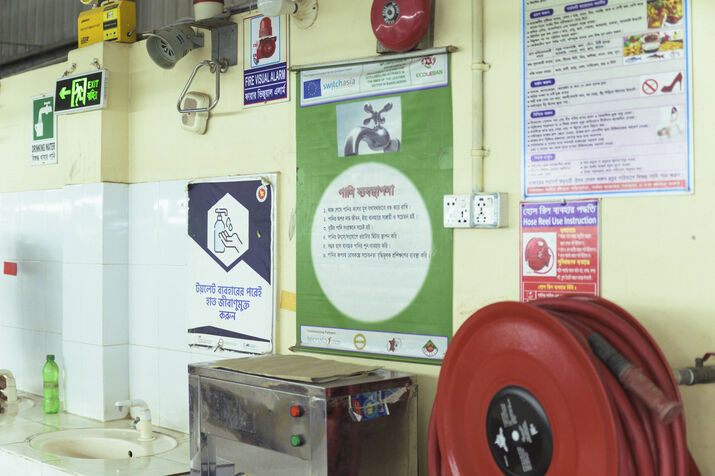
>>> For more information on leather goods Click here.
4.1 A Career, Not Just a Job
Our leather goods factory offers career paths with promotions based on merit. Vulnerable workers move from training to leadership roles, such as:
- Packing supervisors
- Production supervisors
- Sample development technicians
- Store assistants
- Quality Control supervisors
4.2 Financial Independence & Dignity
With fair wages and financial literacy training, our team members are empowered to:
- Pursue further education
- Support families
- Access healthcare
4.3 Building Community Role Models
Formerly vulnerable individuals become role models in their communities, encouraging others to break barriers and join the formal economy.
4.4 Success Stories that Inspire
From a single mother becoming a senior stitcher, to a third-gender recruit leading a production unit these success stories show how leather goods manufacturing can be a life-changing industry.
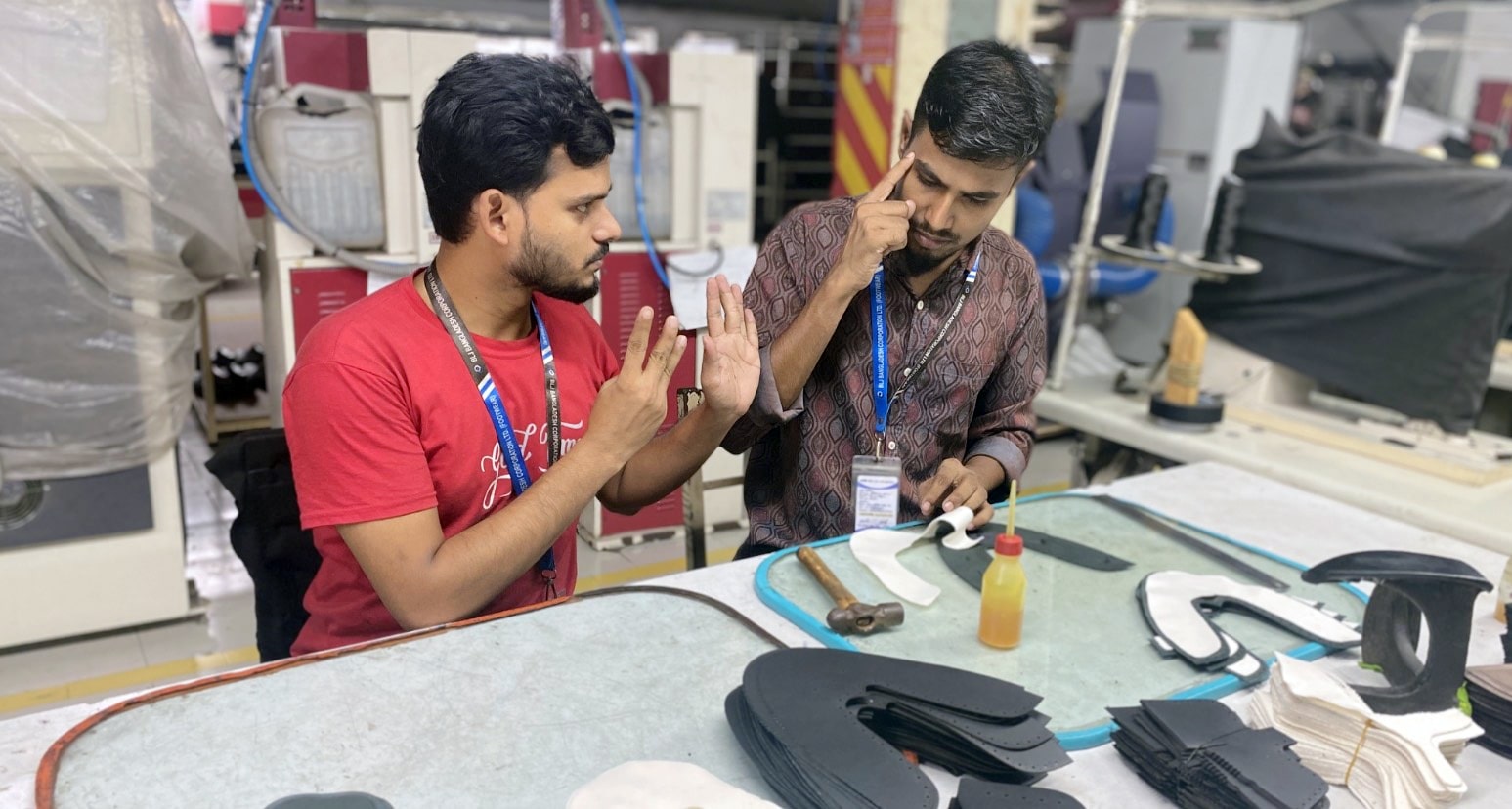
5.1 Higher Retention & Job Satisfaction
Inclusion builds loyalty. Our compassionate approach has led to higher employee retention rates and reduced training costs.
5.2 Enhanced Brand Image & Buyer Trust
Global buyers increasingly demand transparency and ethical sourcing. Our inclusive model appeals to socially conscious brands from Japan, Europe, and the USA.
5.3 Contribution to ESG Goals
By supporting vulnerable persons, we contribute directly to SDGs (Sustainable Development Goals) particularly those related to decent work, reduced inequality, and gender equality.
5.4 Competitive Edge in a Global Market
In a saturated market, ethical manufacturing gives our factory a unique selling point that sets us apart in international trade shows and B2B platforms.
5.5 Competitive Edge in a Global Market
Modern consumers demand transparency, sustainability, and ethics. Integrating vulnerable persons directly supports:
- UN Sustainable Development Goals (SDGs)
- Fair Trade Principles
- Global Buyer Preferences for socially responsible factories

>>> For more information on leather footwear Click here.
6.1 A Call to Action for the Industry
Supporting vulnerable workers should be the industry standard, not an exception. Ethical leather goods manufacturing is the future.
6.2 Scaling the Model
We aim to replicate our success across multiple production units and expand training programs for even more marginalized groups.
6.3 Collaborating with Ethical Brands
We invite ethical fashion brands and private labels to partner with us, to co-create collections that speak of quality, ethics, and impact.
6.4 A Human-Centered Approach Wins
In leather goods manufacturing, machines can’t replace the human touch. And when the hands behind your product are empowered and valued, every stitch carries a story of hope.

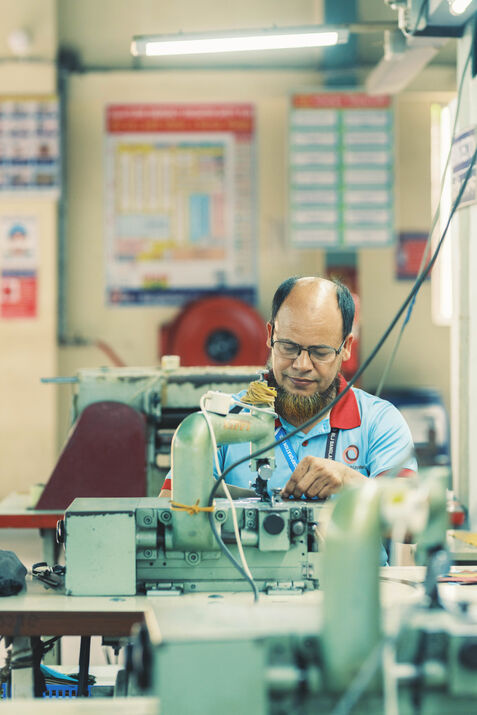
BLJ Bangladesh Corporation Ltd., our commitment to supporting vulnerable persons is not just about charity it’s a sustainable business model that blends quality, ethics, and empowerment. Together, we can lead a new era in leather goods manufacturing, where compassion and craftsmanship go hand in hand.
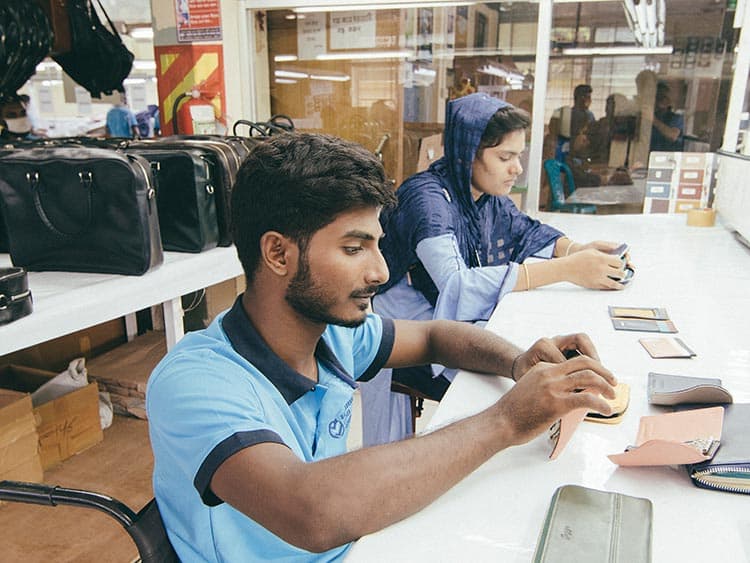
BLJ Bangladesh Leather Goods & Footwear Manufacturer We operate our own factory in Bangladesh, committed to using eco-friendly materials and supporting fair trade practices. As a specialized OEM manufacturer of Leather Bags, Wallets, Leather Shoes, Sneakers & more, we are pleased to offer production services starting from a minimum order of just 100 pcs & pairs. >>> Click leather goods page~
Quality vs. Quantity: Why Handmade Leather Goods manufacturing are Worth the Investment
Empowering Women in Leather Goods & Footwear Manufacturing
Healthy, Happy and Heard: How We Care for Our Factory Workforce
Voices of Experience


You dream it, we craft it. Let’s make something one-of-a-kind.
Contact us




